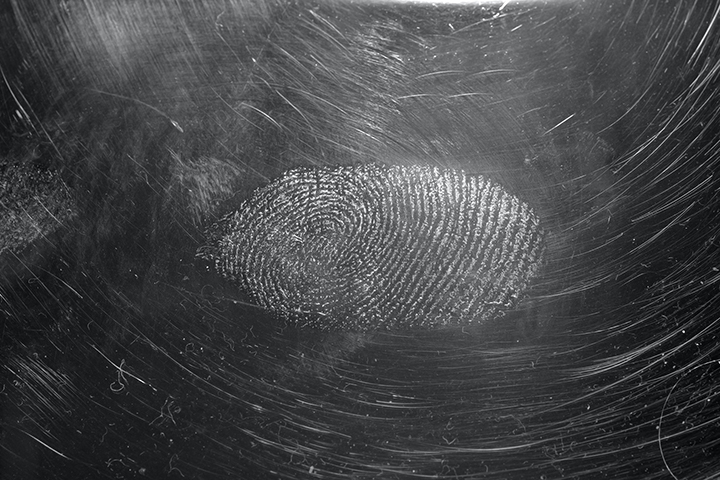
Clinical Psychology, PsyD
In the PsyD program, we train students to lead across a range of settings in the field of health service psychology.
Program Intro
In CBU’s Clinical Psychology, PsyD program, students focus on the practice of clinical psychology, using the science of clinical psychology to guide their professional work. They develop research skills through research teams and other avenues that result in original, empirical research projects. Through coursework, practicum training, a full-time internship, a clinical competency exam and an original dissertation project, students develop the requisite skills, attitudes, knowledge and behavior to serve a diverse public. The ultimate aim of the CBU PsyD program is to prepare doctoral students for entry-level practice in clinical psychology.
*Based on current academic year. Subject to change.
Why Earn a PsyD in Clinical Psychology at CBU?
Be trained to work with a diverse public
We acknowledge the reality that biases and assumptions often remain hidden, and can undermine effective client care when working with those who have a different cultural background. Because of this, faculty within our program work with students to be sensitive to cultural differences, and emphasize “culture-centered” research and and the importance of working from within clients’ own framework.
Integrate the Christian faith
We believe that the Christian faith, including the rich heritage of Christian writers who have elucidated an astute psychospiritual understanding of the human condition (especially suffering), can play an important role in working with Christian consumers of mental health services. Students are able to explore ways to think about building and testing theory so as to meet the needs of Christian clients, drawing from a Christian worldview in order to offer culturally sensitive, evidence-based care to a large segment of the American population.
Student Admissions, Outcomes, and Other Data (PDF)
Program Details
PSY 736: Behavioral Neuroscience
This course focuses on the biological bases of human behavior, exploring the structure and functioning of the brain, neurochemistry, hormones, genetic influences, and biological contributing factors to psychopathology.
PSY 761: Psychology and Christianity I: Theology
As the first of four courses, students focus on understanding and applying Christian theology to the foundations of clinical psychology.
PSY 776: Intervention VI: Group Approaches to Treatment
This course focuses on theoretical and evidence-based models of group therapy.
- Forensic Psychology Elective Track
- Organizational Psychology Elective Track
- Sport and Performance Psychology Elective Track
The CBU PsyD program is accredited by the American Psychological Association (APA), on contingency through the following date: September 28, 2026.
Questions related to the program’s accredited status should be directed to the Commission on Accreditation:
Office of Program Consultation and Accreditation
American Psychological Association
750 1st Street, NE, Washington, DC 20002
Phone: (202) 336-5979 / E-mail: apaaccred@apa.org
Web: www.apa.org/ed/accreditation
- Developing General Knowledge in the Discipline of Psychology: Students will be academically prepared to work within health service psychology, developing the necessary knowledge base to competently, ethically, and effectively function as a clinical psychologist in a wide variety of settings with diverse populations. Students will understand and apply a knowledge of the history and systems of psychology, theories of psychotherapy, affective, biological, cognitive, developmental, sociological, and abnormal bases of behavior, integrative knowledge within multiple domains of psychology, research approaches, and psychometrics to health service psychology. In total, 13 areas of knowledge (made up of 13 Student Learning Objectives) will be emphasized within this Student Learning Outcome so as to build a solid scientific foundation that informs clinical practice.
- Developing Specific Competencies in the Profession of Clinical Psychology: Students will be globally minded and equipped to serve within the profession of clinical psychology, developing the necessary foundational and functional skills to competently, ethically, and effectively function as a clinical psychologist in a wide variety of settings with diverse populations. Specifically, students will understand the role that several key competencies play in health service psychology, developing these skills incrementally as they move from practicum placement to internship, followed by graduation and independent practice. The six competency domains within the CBU PsyD Program focus on (a) professionalism, (b) relationships, (c) science, (d) the application of evidence-based practice, assessment, intervention, and consultation, (e) supervision, and (f) systems, all of which emphasize the value of individual and cultural diversity and the empirical literature within clinical psychology. Among these competency domains within this Student Learning Outcome, 13 specific competencies will be tracked via both formative and summative assessment methods, captured in 13 Student Learning Objectives.
- Developing General Knowledge of Both Psychological Science and a Christian Worldview and the Specific Competency of Integrating Science and Faith in the Profession of Clinical Psychology: Students will be biblically rooted within the profession of clinical psychology, developing the ability to integrate a Christian worldview into previously developed and well-established theories and empirical models, starting with psychological science as the foundation and exploring ways the Christian tradition aligns with clinical psychology. Students will also learn how to begin with a Christian worldview, using several biblical traditions to build, test, and evaluate theory, starting with the Bible as the foundation and exploring ways the scientific method can help to enrich, deepen, and empirically validate a biblical view of suffering and healing in the 21st century by focusing on assessment and intervention for Christian clients. In total, 4 Student Learning Objectives are captured within this particular Student Learning Outcome, which leads to the development of faith integration as a specialty area in clinical psychology. ( Eric Johnson at the Southern Baptist Theological Seminary offered helpful feedback in the development of these four SLO Objectives.)

Joshua Knabb, PsyD, ABPP
Professor of Psychology
Associate Dean, Division of Psychology, College of Behavioral and Social Sciences
Director, PsyD Program
Office Phone: 951-343-4405
E-mail: jknabb@calbaptist.edu
Office Location: W. E. James Building, Room J116

Robert Pate, PsyD
Professor of Psychology
Director of Clinical Training, PsyD Program
Office Phone: 951-343-4588
E-mail: rpate@calbaptist.edu
Office Location: James 125B
Within the Program, students complete three years of practicum placement, along with a full-time internship. To start, students will complete foundational coursework in the first year of the Program, which helps them to begin to develop foundational knowledge and professional competencies in order to transition to supervised training in the second year of the Program.
In the second year of the Program, students complete their first year of practicum training, which consists of a 12-month placement at CBU’s community mental health center. As students’ first practicum experience, supervised training at CBU’s clinic prepares students for an external practicum placement in the third year of the Program.
In the third year, students obtain an intervention-focused training placement, working with clients in a psychotherapeutic capacity. In the fourth year of the Program, which is the final year of practicum training, students gain important experience conducting psychological assessments, learning how to administer a battery of tests and write up the results in an assessment report.
These three years of practicum prepare students for the next step, which involves a full-time internship placement in the fifth year of the Program. Along the way, students work with the Director of Clinical Training (DCT) to ensure their training needs are being met, and that they are developing the necessary professional competencies to move towards independent practice upon graduation from the Program.
Students will begin working on their dissertation in the first year of the Program by identifying a faculty member to serve as the dissertation chair. In addition, students will begin the three-course series on statistics, research methods, and psychometrics in the first year so as to build a knowledge base for subsequent dissertation work.
In the second year, students will join a research team, wherein they will be mentored by a faculty member so as to develop an original research project (this project may lead to a dissertation topic or be focused on another area of research).
In the third and fourth years of the Program, students will work formally with their dissertation chair in order to develop, propose, and defend their dissertation.
Dissertation types include a quantitative, qualitative, literature review, theoretical, or program development and evaluation dissertation. Students must successfully pass the dissertation proposal phase before formally submitting applications for internship, and students must successfully defend the dissertation by the end of the fourth year (prior to actually starting internship).
Given the competitive nature of the internship process, students are advised to select a topic that allows them to market themselves in the internship interview process, building on their professional development within coursework and the practicum process. In other words, selecting an applied clinical area of focus that draws out students’ strengths; cultivating expertise in an area of passion within the field is paramount so as to intelligently and confidently discuss this experience with internship sites (should they ask about the dissertation experience).
The CBU PsyD degree curriculum meets the education requirements in California for licensure as a psychologist. Information regarding licensure requirements can be obtained by contacting the California Board of Psychology:
Board of Psychology
1422 Howe Avenue, Suite 22
Sacramento, CA 95825-3200
(916) 263-2699
psychology.ca.gov
Students who wish to pursue licensure outside of California should contact that state’s licensing board for further information on state licensure requirements, including curriculum and supervised professional experience.
What are the program's entry dates and application deadlines?
The doctorate in clinical psychology program admits students once a year — in fall
(September). Our priority deadline is January 15, and our final deadline is August
1 of the year you are applying to.
How long does the admissions process take?
Once an application file and/or interview is complete, all applicants will be notified
of a decision approximately 60 to 90 days from the time they submitted their applications.
As you make decisions about graduate school, keep in mind the full social, spiritual and educational experience awaiting you at CBU. Here, you will be supported by professors, staff and fellow students who will help you discover your strengths and challenge you to do more than you ever thought you could. Let us equip you with the education, training and opportunities you'll need to start making a unique difference doing what you love.
| Application Deadline | Fall |
|---|---|
| Priority | January 15 |
Career Possibilities
Upon completing CBU’s PsyD in Clinical Psychology program, candidates will be well prepared for various careers in psychology.
- Clinical Psychologist
- Forensic Psychologist
- Clinical Director
- Neuropsychologist
- Correctional Facility Psychologist
- Military Psychologist
- Professor
- Consultant
- Researcher
Related Programs
Next Steps
Join our community. At CBU, you’ll be challenged to become an individual whose skills, integrity, and sense of purpose glorify God and distinguish you in the world.



